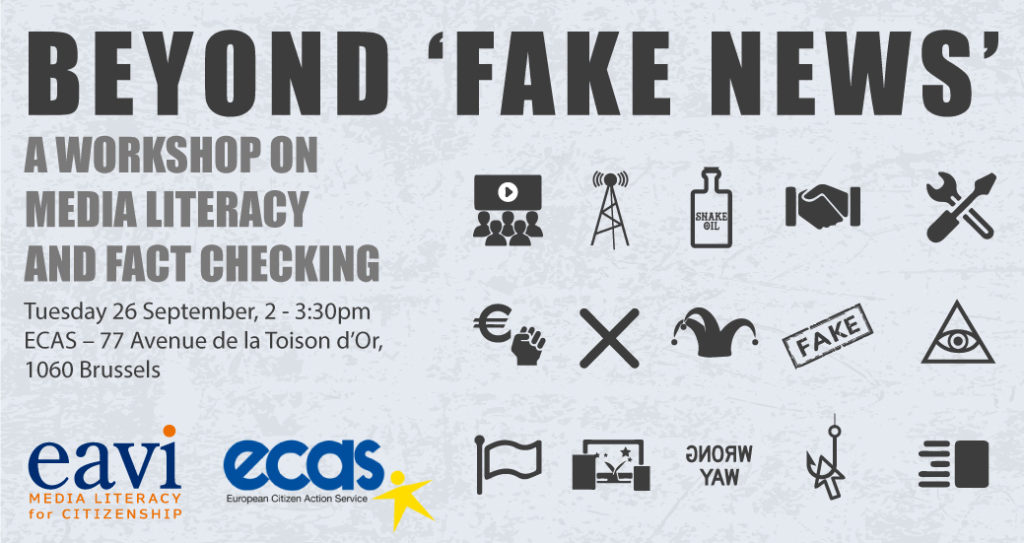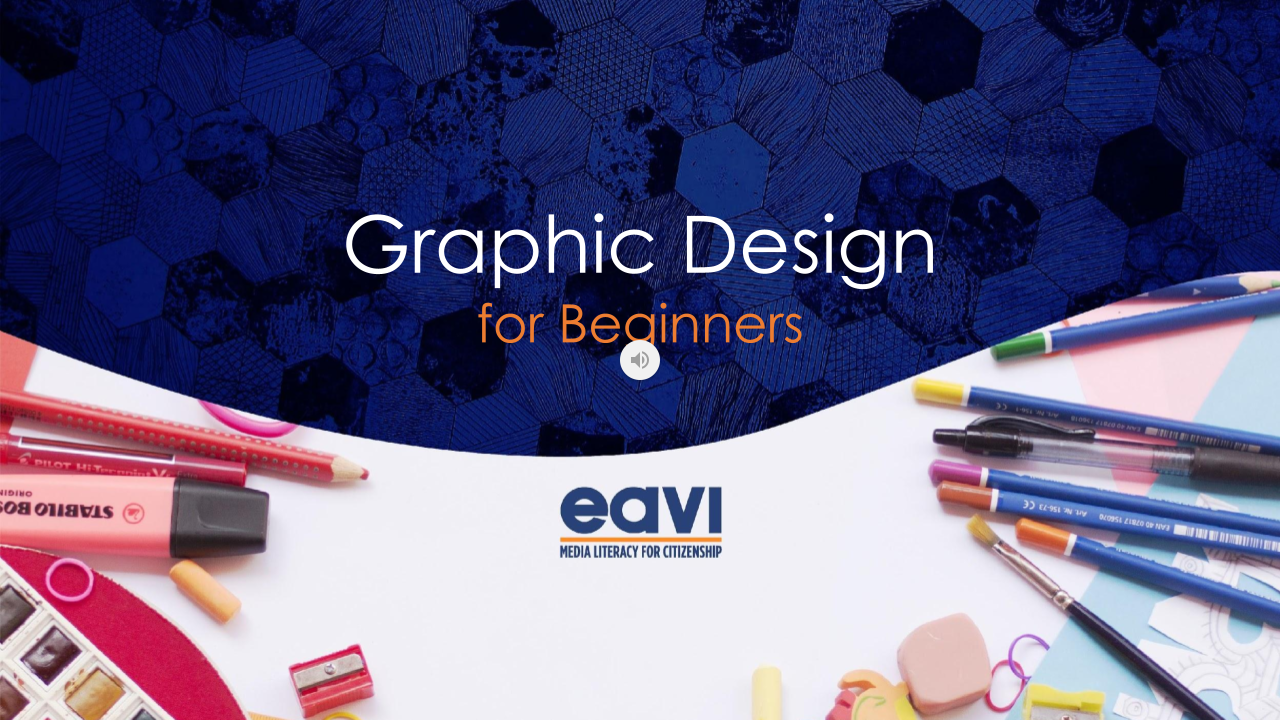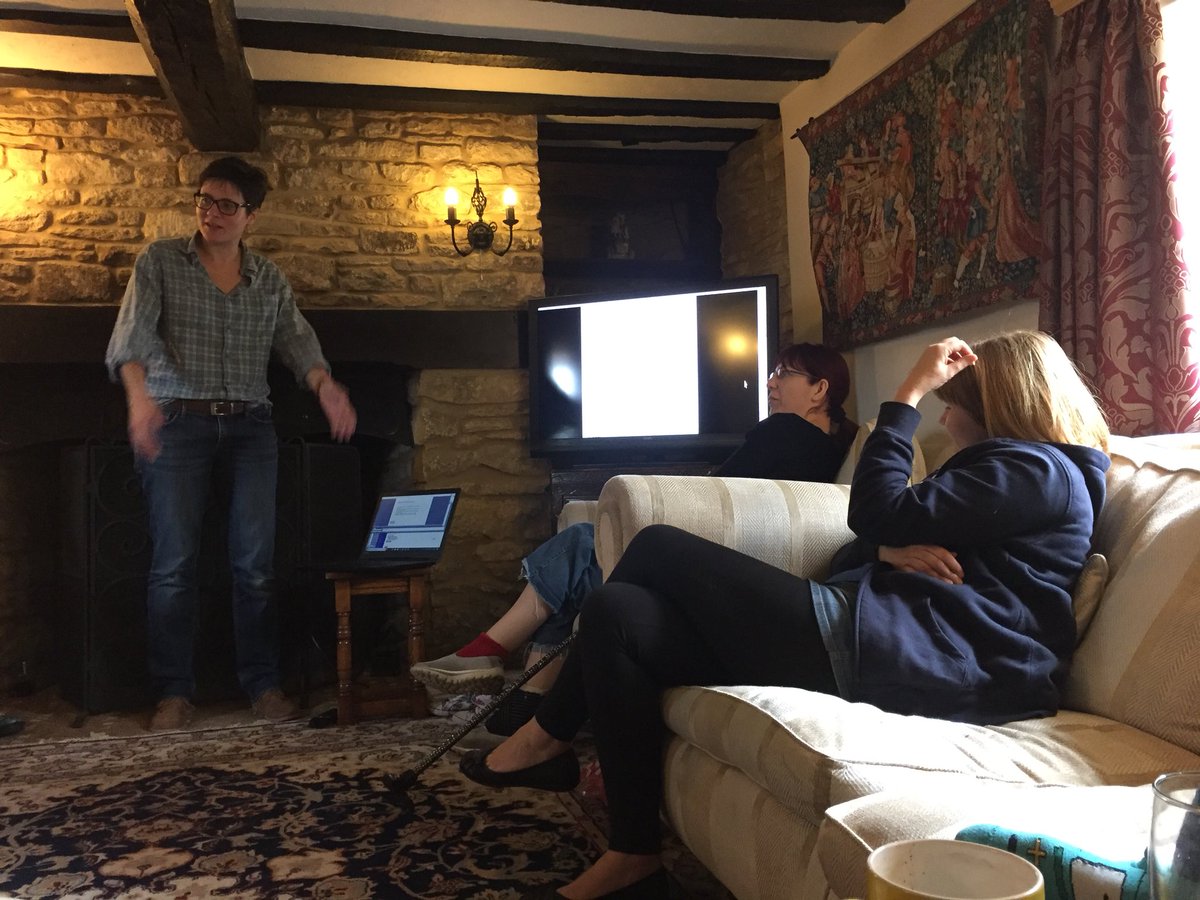We are now subject to media messages more than at any time in history. As the barriers to creating professional-looking multimedia content have been lifted, democratising content production and giving everyday people the opportunity to contribute, so too has the need to verify the reliability of this content.
It has become increasingly difficult to distinguish credible news sources from unreliable ones. The UK referendum in 2016 and the US election popularised the term ‘fake news’, but what is fake news and how do we know when we see it?
Fake news and its effects are subject to many debates. However, few organisations have proposed an effective training programme for individuals to learn how to evaluate information and check facts. For citizens to be able to effectively participate in the media and confidently curate their media consumption, the skills to discern between credible and bogus media message need to become second nature.
In collaboration with the European Association for Viewers Interests (EAVI), ECAS will be hosting a workshop in Brussels on September 26 on fake news, media literacy and the shifting media landscape.
The workshop will be divided into three sections:
- The 5 media literacy key concepts and questions.
- A comprehensive overview of the latest visual verification and fact-checking tools.
- Practical exercises on fact-checking.
We are now subject to media messages more than at any time in history. As the barriers to creating professional-looking multimedia content have been lifted, democratising content production and giving everyday people the opportunity to contribute, so too has the need to verify the reliability of this content.
It has become increasingly difficult to distinguish credible news sources from unreliable ones. The UK referendum in 2016 and the US election popularised the term ‘fake news’, but what is fake news and how do we know when we see it?
Fake news and its effects are subject to many debates. However, few organisations have proposed an effective training programme for individuals to learn how to evaluate information and check facts. For citizens to be able to effectively participate in the media and confidently curate their media consumption, the skills to discern between credible and bogus media message need to become second nature.
In collaboration with the European Association for Viewers Interests (EAVI), ECAS will be hosting a workshop in Brussels on September 26 on fake news, media literacy and the shifting media landscape.
The workshop will be divided into three sections:
- The 5 media literacy key concepts and questions.
- A comprehensive overview of the latest visual verification and fact-checking tools.
- Practical exercises on fact-checking.
We are now subject to media messages more than at any time in history. As the barriers to creating professional-looking multimedia content have been lifted, democratising content production and giving everyday people the opportunity to contribute, so too has the need to verify the reliability of this content.
It has become increasingly difficult to distinguish credible news sources from unreliable ones. The UK referendum in 2016 and the US election popularised the term ‘fake news’, but what is fake news and how do we know when we see it?
Fake news and its effects are subject to many debates. However, few organisations have proposed an effective training programme for individuals to learn how to evaluate information and check facts. For citizens to be able to effectively participate in the media and confidently curate their media consumption, the skills to discern between credible and bogus media message need to become second nature.
In collaboration with the European Association for Viewers Interests (EAVI), ECAS will be hosting a workshop in Brussels on September 26 on fake news, media literacy and the shifting media landscape.
The workshop will be divided into three sections:
- The 5 media literacy key concepts and questions.
- A comprehensive overview of the latest visual verification and fact-checking tools.
- Practical exercises on fact-checking.























































































































































